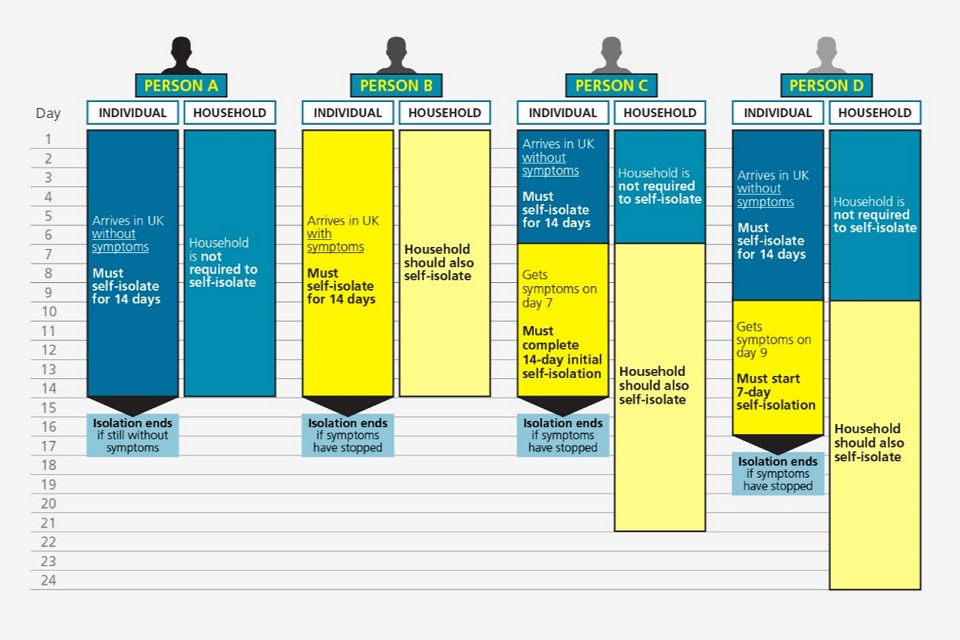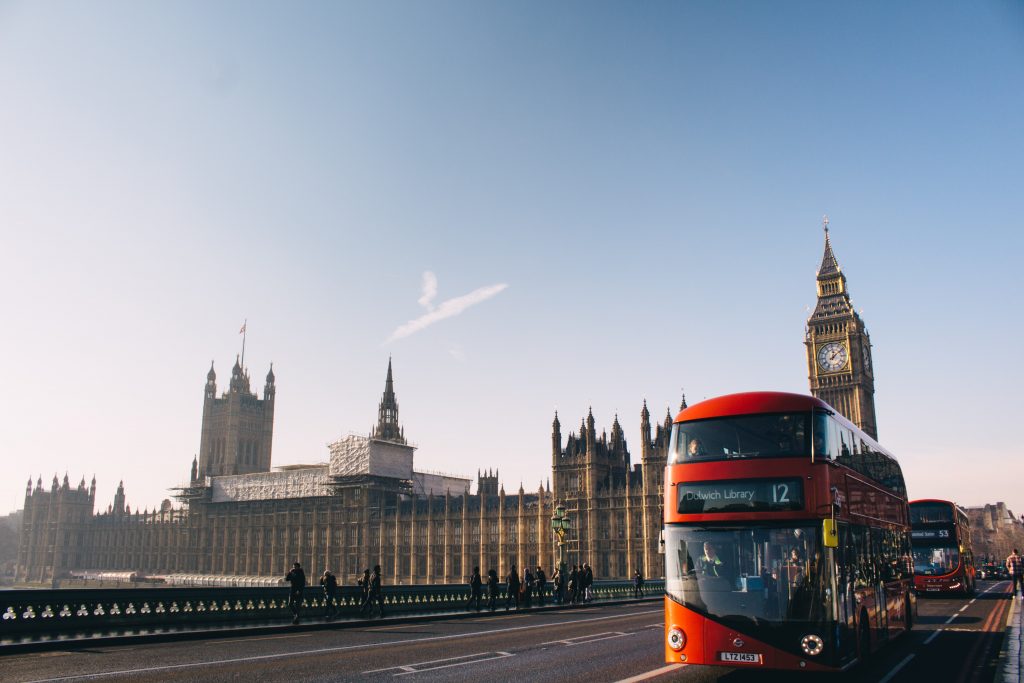UK’s Quarantine – Add another 2 weeks to your visit
It’s been widely publicised that travelling to the UK during these plagued times is about to become a whole lot longer than anticipated. Sure, we’ve all started to adapt to change and the new normal, but are you aware of what’s expected of you and what happens when you’re not?
Whether you agree or otherwise, since June 8th, the British Government have implemented measures to enforce a 14 days quarantine on new arrivals to the UK backed up by Science in a bid to prevent a second wave.
The Coronavirus Act was expedited through the UK parliament quicker than a room is cleared by a sneeze or cough, and this bill does not mess about. However, it does make it clear what you need to do and, if you need to do anything at all. The rules can vary depending on your destination in the UK — England, Scotland, Northern Ireland and Wales.
It’s not just about coming to the UK, where you’ve travelled from plays a part as well. Read further on the Common Travel area later in this posting.
So, if you’re planning on coming to the UK, via airport, rail or seaport, for business or pleasure, here are some guidelines that will help you navigate your way through and understand the rules for self-isolation. Incidentally, even if your stay in the UK is less than 14 days, you are still expected to self-isolate for the duration of your stay.
Firstly, some of you will have to complete a Public Health Passenger Locator form (PHPL) 48 hours before you arrive, and not before, I’ve tried sooner, it doesn’t work. This information, as the name suggests, is your opportunity to let the Home Office and Public Health England know when you’re arriving and your planned accommodation. Bear in mind, Hotels are not open yet.
As with most Gov.UK sites, it’s a simple on-line application that takes only a few minutes. Be ready to give very precise information on your flight details, passport, your arrival and departure dates and the location of where you’re staying. For emergency purposes, you will also be asked to provide a telephone number and email address of a close contact. Finally, there is the obligatory declaration simply stating that 1) You will arrive in the UK in the next 48 hours, and 2) The information you have entered in the form is correct. Failing to complete this form will leave you with a fine of 100 GBP which is roughly around the same price for a decent hotel room in London for 1 night.
If you fail to provide an address of where you’re staying, the UK Government will kindly ‘arrange one for you’ at your expense. Now, I love my country, but I wouldn’t want my Government to be arranging my accommodation on any terms, so, don’t forget that rather big detail.
Now, you’ve entered the country, said Hello to Border Force and need to get to that much needed place of rest and your appointed home for the next 2 weeks. You’re not going to be encouraged to get pubic transport or taxis either. In fact, you are strongly urged to use your own transport to reach your destination. If public transport is your only option, make sure you have a suitable face covering mask as it is now compulsory to wear one and of course, keep 2 metres apart (although the distance may be subject to change)
You should go directly to the place you’re staying. If you’ve developed Coronavirus symptoms during your journey you will not be allowed to use public transport and must demonstrate that your destination will be a safe place to isolate.
You’ve made it home – now, here’s the list of ‘house’ rules for the weary traveller that has found themselves in self-isolation. I will come to whom this applies to later as it’s an extensive list, but for now…
- You must self-isolate for 14 days from your arrival, this must be in a designated place that you have declared on your PHPL. This can be your home, a temporary accommodation or friends and relatives.
- You cannot have visitors unless they are providing essential care
- You can only have contact with those people that have either travelled with you, or, you are staying with.
- You cannot visit your place of work, School or any other Public areas
- When you need to get food and essential supplies, order a delivery or ask friends/relatives
- Exercising must be contained to your home or garden
There are some exceptional circumstances when you can leave your accommodation:
- If there’s an emergency
- You require urgent medical assistance
- You need to attend a funeral of a close relative
- You need to get food/essentials in cases where it’s impossible for a delivery
- You need access to critical public services, victim support etc
You are not allowed to change the place you are staying at without informing the authorities. Failing to do so can result in a fine. You can change in the following circumstances though:
- You are legally obliged to change address
- If there’s an emergency
- It is necessary to stay overnight in accommodation before travelling to your designated place of self-isolation – This must be declared on the PHPL form
If all of that’s not enough for you, then consider this, if you do not self-isolate, you will be fined GBP 1000. If you continue to not self-isolate, or move to another address without notification, you could be fined up to GBP 3200. (that’s almost the price of 4 x iPhone 11s) Basically, there’s lot of reasons why you could be fined. Cause enough trouble and you may find yourself returning to the airport sooner than you expected.
Who is doing all this fining you wonder? Well, between Border Force, The British Police and Public Health England, they’ve been given powers to spot check that you are physically at home in the location you have declared. Public Health England are an executive agency sponsored by the Department of Health and Social care.
Who is exempt from these rules? Well, as I mentioned, quite a few people. First off, there’s those travelling from the Common Travel Area (CTA); this is anyone from within the UK, Northern Ireland, Isle of Man or the Channel Islands. If you have been in the CTA for 14 days before travelling, you will not need to complete the PHPL form or self-isolate.
Next up on the exemption list are the following:
- Members of Diplomatic Missions and Consular posts in the UK
- Officers, Servants or representatives of International Organisations
- Representatives at an International or UK conference granted privileges and immunities, and their families and dependants, although the families and dependants will have to self-isolate
- Representatives of a foreign country or territory and representatives of the British Overseas Territories, along with their families or dependents travelling to the UK to undertake official business with the UK (accompanied families will have to self-isolate)
For the above, before you travel, your Country will need to notify the UK Foreign & Commonwealth Office (FCO) to issue an exemption letter to show to UK Border Force on arrival.
The following are also exempt from the self-isolation and PHPL in certain circumstances:
- Defence Personnel, Visiting Forces and Government Contractors
- UK Officials and Contractors required to work on essential border security duties
- Non-UK Officials and Contractors required to work on essential border security issues
Next are just some of the exemptions that will need to complete the PHPL but do not need to self-isolate
- Crown Servants or Government Contractors travelling to the UK for essential Government work
- People who live in the UK but work in another country and travel between the UK and country of work at least once a week
- People who live outside of the UK but work in the UK and travel between their country of residence and the UK at least once a week
- People transiting airside – arriving in the UK but do not pass the border control
- Civil Aviation inspectors engaged on inspection duties
- Seasonal agricultural workers who have an offer of employment for seasonal work to carry out specific activities in edible horticulture on a named farm
- Postal workers that involved in the transport of mail into and out of the UK
- Registered Health or care professionals travelling to the UK to provide essential healthcare including where this is not related to coronavirus
For the comprehensive list of people and the rules, please visit the Gov.UK site.
You’re not alone, the National Health Service offer a ‘check in and chat’ line available between 8am and 8pm on 0808 196 3646.
To contact the NHS COVID-19 service go here; https://111.nhs.uk/.
For emergencies in the UK, call 999
The UK Government have provided the following chart to help you understand the self-isolation procedures.

Finally, Welcome to the UK, please follow the rules and stay safe!
This posting was made on 22nd June 2020 – information is subject to change.






